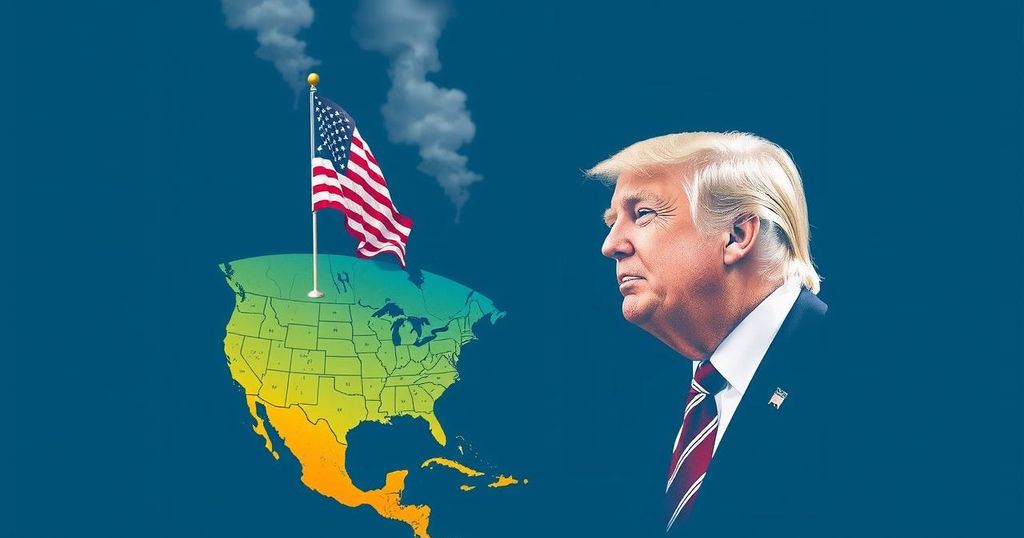Donald Trump’s second term raises concerns about U.S. climate policies, potentially undermining global efforts in combating climate change. If Trump withdraws from the Paris Agreement and rolls back environmental regulations, leadership in climate action may shift to other nations, notably China, which is advancing in renewable energy. However, climate action is expected to persist internationally, despite U.S. disengagement.
As Donald Trump begins his second term as President, global climate change advocates express concern regarding the implications for international climate action. Trump has indicated a desire to withdraw the United States from the Paris Agreement and has proposed policies that favor fossil fuel expansion, raising concerns about the U.S. commitment to reducing greenhouse gas emissions. His previous administration’s actions, which included rescinding numerous environmental regulations and promoting oil drilling, highlight a potential regression in U.S. climate leadership. Despite these challenges, many experts suggest that climate action will persist globally, regardless of U.S. withdrawal. Christiana Figueres, former Executive Director of the UNFCCC, stated, “The result from this election will be seen as a major blow to global climate action, but it cannot and will not halt the changes underway to decarbonise the economy and meet the goals of the Paris Agreement.” She emphasizes the increasing competitiveness of clean energy technologies against fossil fuels, underscoring a shift toward sustainable energy sources. Trump’s potential retreat from climate commitments could shift the mantle of climate leadership to China, which is advancing rapidly in renewable energy and cleantech sectors. Moreover, if the Inflation Reduction Act is rolled back, significant economic opportunities may be lost for the U.S., with countries like the European Union and India positioning themselves to benefit from investments and jobs linked to clean energy initiatives. In India, anticipations weigh both risks, such as diminished climate finance, and opportunities like heightened investments in clean energy projects. Dr. Arunabha Ghosh of the Council on Energy, Environment and Water cautions that while U.S. disengagement might introduce disruptions, it should not deter global progress. In conclusion, while Trump’s presidency poses significant challenges to U.S. climate policies and international agreements, the global movement towards climate action is likely to continue. Nations are encouraged to sustain their commitments to combat climate change, irrespective of the evolving leadership in the U.S. The necessity for coordinated efforts remains paramount to combat the pressing challenges posed by climate change in the coming years.
The potential impact of the Trump administration on climate change policy is a significant concern for climate advocates worldwide. With Trump’s prior track record of rolling back environmental regulations and expressing skepticism about climate change, his second term raises alarms about the future of the Paris Agreement and the United States’ role as a leader in global climate efforts. The context surrounding Trump’s presidency is critical for understanding the broader implications for international climate action and how other nations may respond to U.S. policy shifts.
In summary, Trump’s return to the presidency presents multifaceted challenges for climate action both domestically and internationally. While the possibility of U.S. withdrawal from the Paris Agreement looms, global commitments to combating climate change are expected to persist. The evolution of climate leadership may shift, with countries like China likely to take a more prominent role in promoting renewable energy and environmental sustainability. Collective international action remains essential as the global community navigates the complexities posed by changing U.S. policies.
Original Source: carboncopy.info






